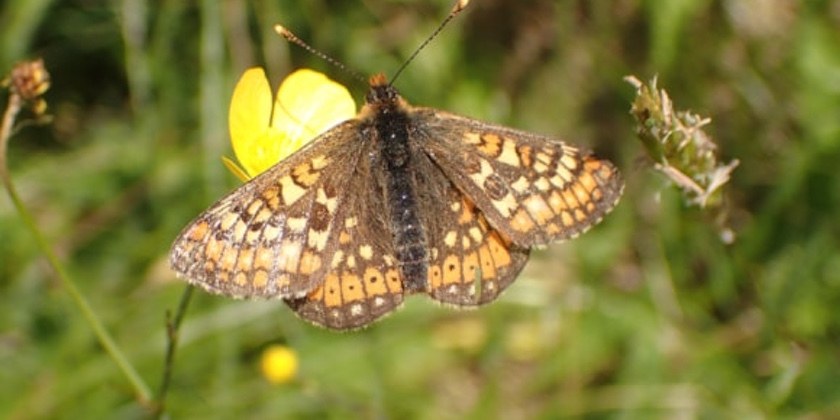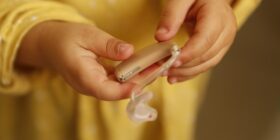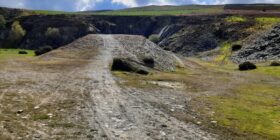Natural Resources Wales supporting ‘No Mow May’ campaign to protect pollinators

Natural Resources Wales (NRW) will reduce mowing as much as possible on land in its care during May in a bid to help tackle the nature emergency.
The organisation has thrown its support behind Plantlife’s ‘No Mow May’ campaign, which helps to boost biodiversity by allowing spring plants to set seed and grow to provide nectar and pollen for pollinators, such as bees and butterflies.
Every third mouthful of food we eat has been created by pollination, and without pollinators our food supply would collapse.
But the scale and rate of biodiversity loss across Wales is rapidly accelerating.
Half of the UK’s 27 bumblebee species are in decline, and of the 43 species of butterfly seen in Wales, 10 are in severe decline and 17 are declining.
There are several reasons for the decline in pollinators, such as climate change, pollution and pesticides, and change in how land is managed.
Throughout the growing season, NRW cuts grass and vegetation in areas such as forests, nature reserves, river banks, flood defences and reservoir embankments.
NRW will reduce its mowing activities in May as much as possible, but essential grass cutting will continue in some areas across Wales. This can help:
- to manage access to forests and nature reserves to make sure people are safe when they visit.
- to easily inspect flood defences and repair them if needed, helping to reduce flood risk to communities.
- for nature conservation, for example to manage an invasive species or to benefit species in a certain area by cutting the vegetation.
David Letellier, NRW’s Head of Operations South Wales Central, said: “We’re committed to tackling the climate and nature emergencies and helping nature and people thrive together.
“We will reduce our mowing activities in May as much as possible to support pollinators, but we want people to understand that we may carry out essential grass cutting to benefit certain communities or species.
“For example, we may continue mowing flood defences to make sure they are in good working order, or if mowing some sites in May would leave wildflowers to recover and bloom throughout the late summer to benefit certain pollinators.
“We need to act now to protect our pollinators. This is why we manage all of our sites to make them as pollinator friendly as possible and to provide food and shelter for other species.
“There are things we can all do to make it easier for pollinators to survive. These can be relatively simple, such as managing grass verges in a more sensitive way, or leaving wild areas around our offices, homes and public buildings.
“We can all help by making our gardens pollinator-friendly by not using pesticides, not mowing the lawn as often, and growing pollinator-friendly plants.”
To find out more about how you can help support pollinators, visit NRW’s Love Pollinators page or visit Plantlife’s website to learn about the ‘No Mow May’ campaign.
Spotted something? Got a story? Email [email protected]













